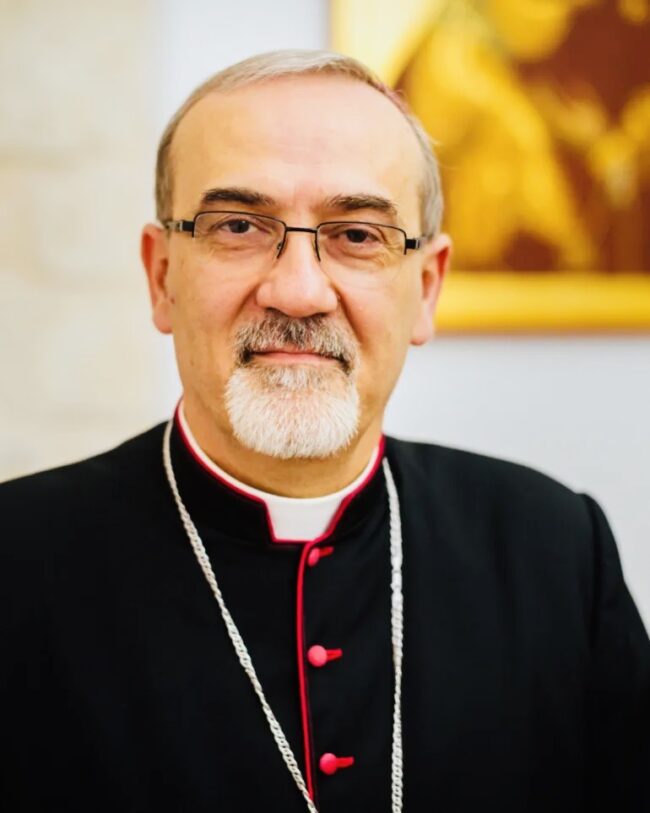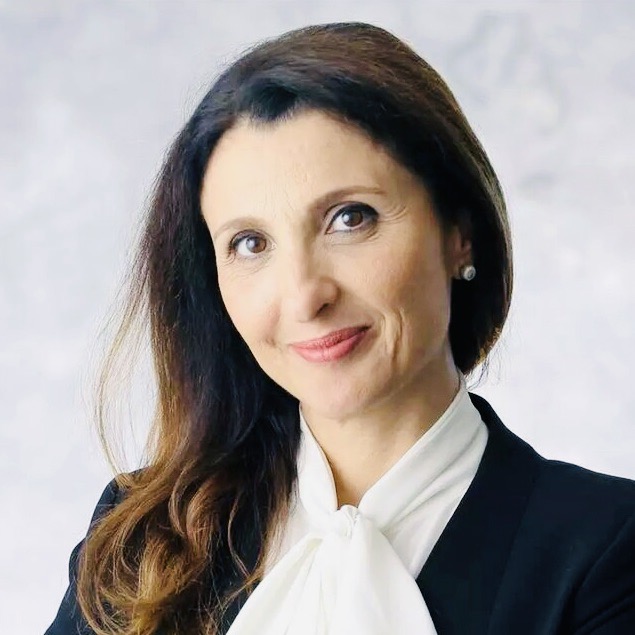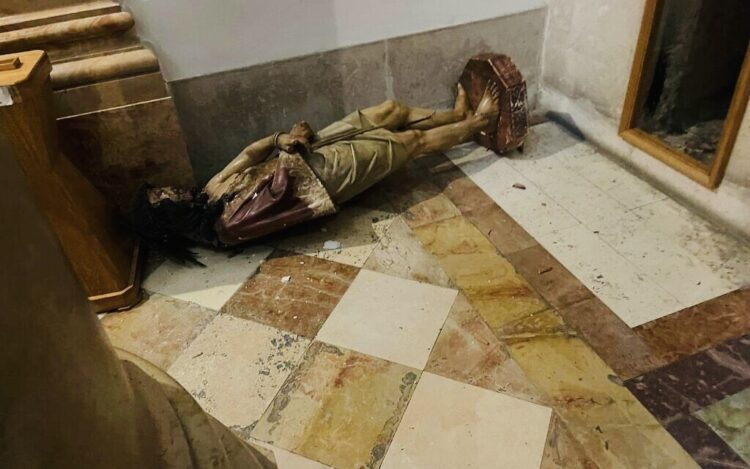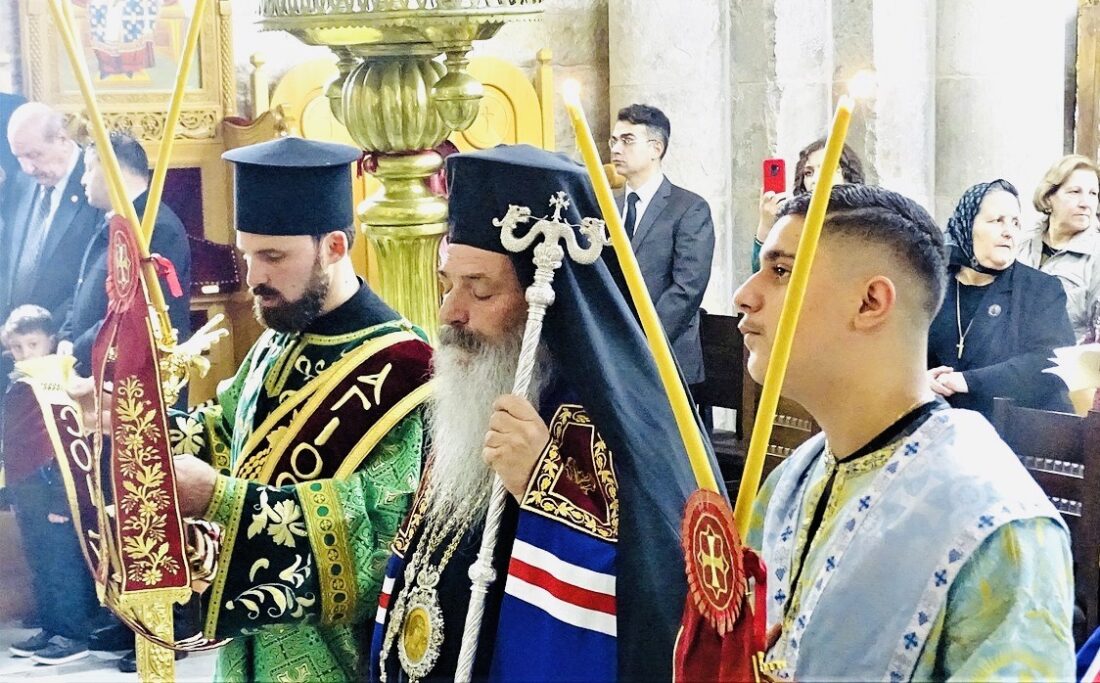Despite an upsurge of anti-Christian incidents in Israel of late, Israel’s Foreign Ministry reportedly intends to boycott an academic conference on that topic scheduled to take place in Jerusalem on June 16.
The conference, to which clerics, foreign diplomats and scholars have been invited, is the brainchild of Yisca Harani, an expert on Christianity who has advised the Foreign Ministry in the past.
She arranged it in the face of a growing wave of attacks by Jewish extremists against Christians in Jerusalem.

The Foreign Ministry’s decision to boycott the conference is odd in light of the fact that the Israeli government entrusts it with the task of strengthening Israel’s external and internal relations with the Christian world.
The boycott is all the more puzzling because Israel, in its 1948 declaration of independence, is committed to the principle of religious pluralism.
“Israel’s commitment to freedom of religion is important to us,” the director of the world religions department in the Foreign Ministry, Tania Berg-Rafaeli, says. “It’s the case for all religions and all minorities.”
Israel is home to 185,000 Christian Arabs, the vast majority of whom reside in Nazareth, Haifa and Jerusalem. Tens of thousands of people of partial or full Christian ancestry, some of whom are married to Jews, live in Israel as well.
In addition, there are a multitude of Catholic, Orthodox and Protestant churches, institutions, holy places and cemeteries in Israel.

Christians in the Middle East have not always fared well. Coptic Christians have been the objects of persecution and attacks in Egypt. Christians in Iraq were attacked by the Islamic State organization between 2013 and 2017. Maronite Christians in Lebanon have been enmeshed in conflicts with their Muslim neighbors.
In Israel, the birthplace of Christianity, Christians have had no problems, at least generally speaking.
“If you are a Christian in the Middle East, there is only one place where you are safe,” boasted Prime Minister Benjamin Netanyahu at a Christian Zionist convention in Brazil in 2018. “There’s only one place where the Christian community is growing, thriving, prospering. That’s in the State of Israel.”
This is true. In 2021, Israel’s Christian population grew by two percent.
Yet there is a dark side to this upbeat narrative. Several months ago, the head of the Roman Catholic church in Israel, Pierbattista Pizzaballa, said that Christians have faced difficult challenges since the formation of Netanyahu’s far right-wing government last December.

According to Pizzaballa, his government has emboldened ultra-nationalist religious activists, some of whom have harassed male and female members of the clergy and vandalized religious property.
“The frequency of these attacks, the aggressions, has become something new,” he told the Associated Press recently. “These people feel they are protected …the cultural and political atmosphere can now justify, or tolerate, actions against Christians.”

His colleague, Francesco Patton, the Custodian of the Holy Land, said, “We are horrified and hurt in the wake of the many incidents of violence and hatred that have taken place recently against the Catholic community in Israel.”
Last week, dozens of Israeli extremists, primarily Orthodox Jews, demonstrated against a Christian prayer event for pilgrims near the Western Wall. The deputy mayor of Jerusalem, Aryeh King, and Rabbi Avi Thau, the head of the Har Hamor yeshiva, were among the protesters.
Assuming they were missionaries, the extremists spat at and cursed the pilgrims, some of whom were pro-Israel evangelical Christians.

King said that Christians should enjoy freedom of worship only inside churches, the newspaper Haaretz reported.
The Foreign Ministry condemned the protesters, saying that Israel “considers freedom of religion and worship in Jerusalem … a central value to the fabric of life in the city.”
Jerusalem’s deputy mayor, Fleur Hassan Nahoum, deplored the anti-Christian demonstration “against our Christian Zionist friends who come to support our country and our eternal capital Jerusalem.”

The Israeli government, however, remained conspicuously silent.
There have been a plethora of incidents against Christians in Israel since late last year.
In November, two Israeli soldiers from the Givati Brigade were detained on suspicion of spitting at the Armenian archbishop and other pilgrims during a procession in East Jerusalem.
Two months later, two Jewish teenagers were arrested for damaging graves at the Protestant cemetery on Mount Zion. During the following week, the Maronite center in Ma’alot-Tarshiba was vandalized by unknown assailants.
In February, an American Orthodox Jew damaged a statue in the Church of the Flagellation in Jerusalem. And in March, a resident of southern Israel was arrested after attacking priests with an iron bar at the Tomb of the Virgin Mary in Jerusalem.

If the anti-Christian violence continues, Pizzaballa warned, it will create “a situation that will be very difficult to correct.” Patton has called on the Israeli government and police “to act with determination to stamp out” this wave of violence.
It’s clear that Israel has a moral obligation to crack down on racists of this ilk. Nothing less will be acceptable. Israel, as a Jewish state, has a special responsibility to keep its Christian minority physically and psychologically secure.
